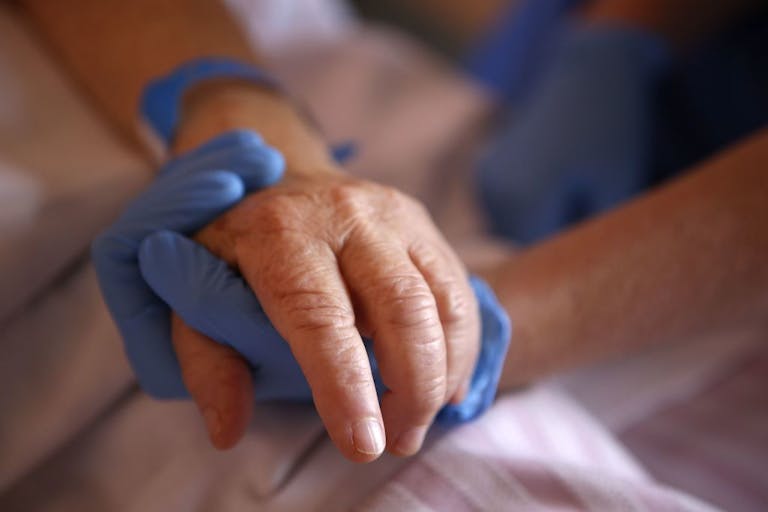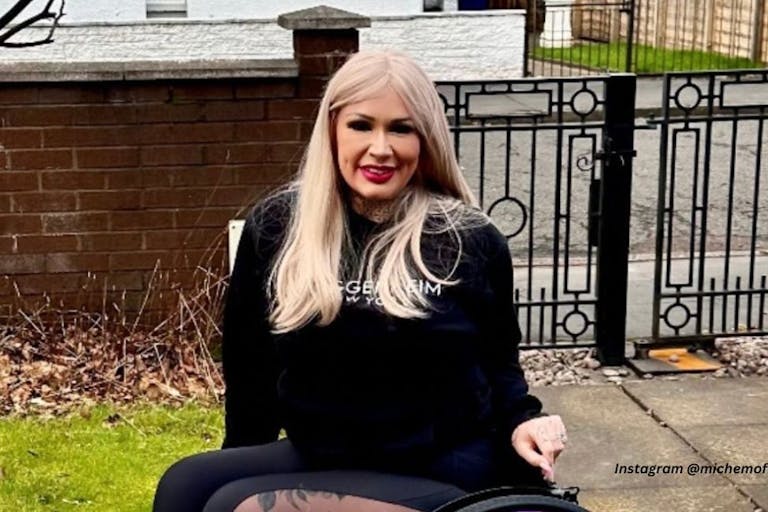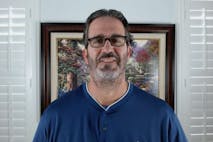
Jersey health leaders say evaluating requests to die may prove impossible
Angeline Tan
·
Paralyzed woman sought assisted suicide… until she found support to keep living
After complications from spinal surgery left a Scottish woman paralyzed, she became depressed and planned to travel to Switzerland to undergo assisted suicide — until a call from her general practitioner changed everything.
Michelle Moffatt originally worked as a nurse, until one day, she bent over to pick up a pen. That simple act led to two prolapsed discs in her back, which were pressing on her nerves and spinal cords. She underwent surgery to correct it, but complications from that surgery left her paralyzed from the waist down. Following that surgery, she began using a wheelchair and became deeply depressed.
“I felt like I couldn’t be a proper wife to my husband, or a real mum and believed I was a burden to everyone,” she told the Daily Record. “By that point, I had been medically retired from my job as an ICU nurse and felt that I had nothing to offer anymore.”
She decided to go to Dignitas, a notorious assisted suicide facility in Switzerland, to take her own life. But then everything changed.
“I got a phone call out of the blue from my GP checking up on me. I told her what I decided to do and that’s when she told me about Spinal Injuries Scotland,” she said. “At first I didn’t think they would help me because I hadn’t broken my back in a horrible accident – I’d just bent over to pick up a dropped pen from the floor. But I sent off an email anyway and they got back in touch telling me that they had peer support groups.”
Knowing that there were other people going through the same thing as she was made a world of difference, and she no longer felt alone.
“Hearing the stories of all these amazing people who were living their best lives despite being in a wheelchair really hit home. All of a sudden, my mindset shifted,” she said. “I was still depressed and in a bad way but I realised that ending my life wasn’t the solution. I didn’t know how I’d be okay but I was determined to find a way to get there.”
Moffatt is now an ambassador for the organization, which she says saved her life.
“I now actively choose to try and change my mindset,” she said, adding, “I’ve got so much to live for and it’s so much more than I’ve lost. I’m so lucky to be alive. Rather than thinking ‘oh I can’t be an ICU nurse anymore’, I still have my registration and I can still do some voluntary things. I’ve got my own business as well. I used to absolutely love riding my road bike and actually refused to get rid of it for two years in the hope that I’d get to use it again some day. But after trying out hand cycling, I sold the bike and now I go hand cycling with the kids. The charity has really helped me so much and I just want everyone to know all about them. It scares me to think that someone else out there could be feeling the way I did because they don’t find the charity.”
Moffatt’s experience is not unique. While advocates claim people need access to assisted suicide to avoid a painful, protracted death, data has found that over 90% of people killed through assisted suicide cited “losing autonomy” and “less able to engage in activities making life enjoyable” as their reasoning for seeking assisted death. These deaths are needless, and as Moffatt’s story proves, these individuals need help and encouragement — not a quick death.
Live Action News is pro-life news and commentary from a pro-life perspective.
Contact editor@liveaction.org for questions, corrections, or if you are seeking permission to reprint any Live Action News content.
Guest Articles: To submit a guest article to Live Action News, email editor@liveaction.org with an attached Word document of 800-1000 words. Please also attach any photos relevant to your submission if applicable. If your submission is accepted for publication, you will be notified within three weeks. Guest articles are not compensated (see our Open License Agreement). Thank you for your interest in Live Action News!

Angeline Tan
·
Human Interest
Isabella Childs
·
Human Interest
Lisa Bast
·
Human Interest
Lisa Bast
·
Human Interest
Isabella Childs
·
Human Interest
Bridget Sielicki
·
International
Cassy Cooke
·
Issues
Cassy Cooke
·
Pop Culture
Cassy Cooke
·
International
Cassy Cooke
·
Analysis
Cassy Cooke
·